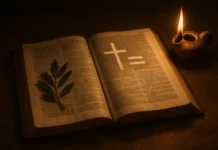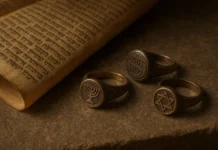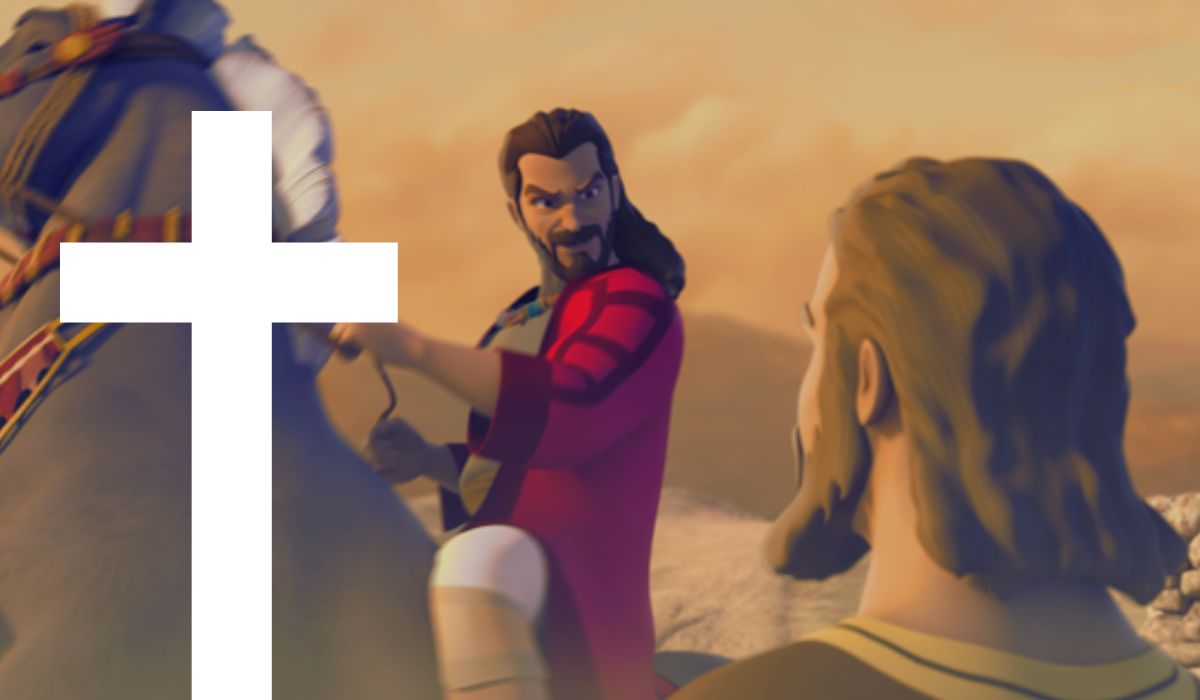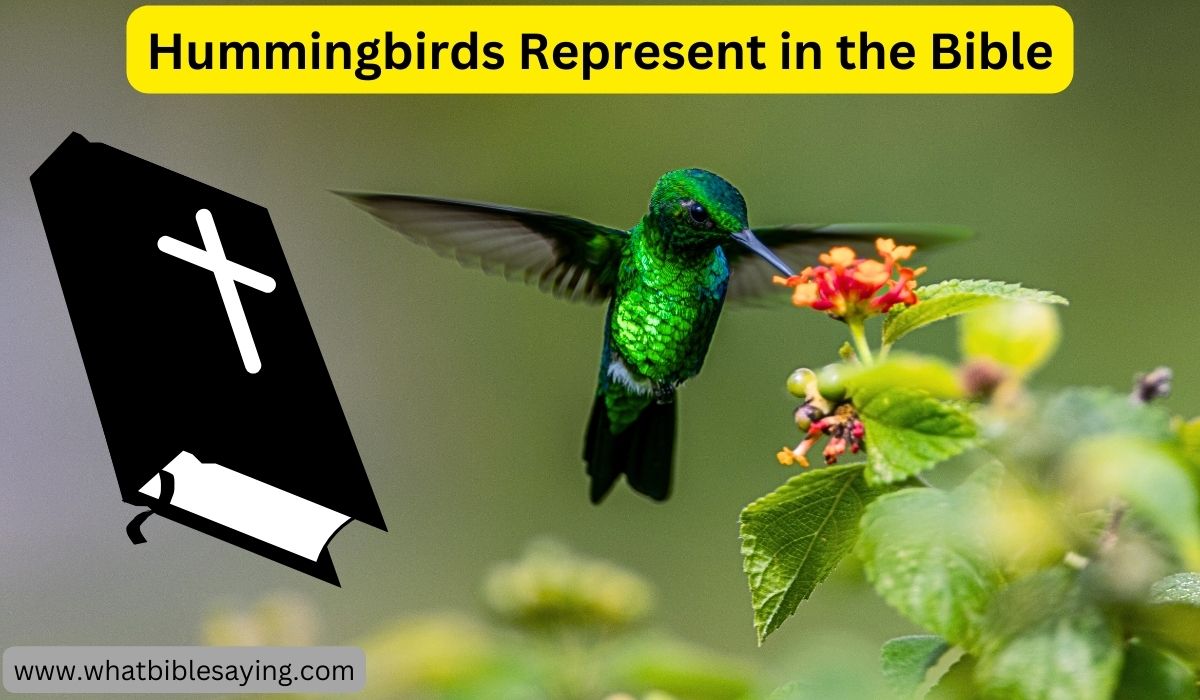 When you open the Bible, the very first part you encounter is the Old Testament. For many of us, it can feel both familiar and overwhelming. We hear about stories like Adam and Eve, Noah’s Ark, Moses parting the Red Sea, or David facing Goliath, but the Old Testament is so much more than a collection of old stories. It is the foundation of faith, the stage on which God begins His grand story of salvation, and the voice of prophets, poets, and everyday people wrestling with life, faith, and God’s promises.
When you open the Bible, the very first part you encounter is the Old Testament. For many of us, it can feel both familiar and overwhelming. We hear about stories like Adam and Eve, Noah’s Ark, Moses parting the Red Sea, or David facing Goliath, but the Old Testament is so much more than a collection of old stories. It is the foundation of faith, the stage on which God begins His grand story of salvation, and the voice of prophets, poets, and everyday people wrestling with life, faith, and God’s promises.
As someone who has spent years walking with people through their faith journey, I’ve learned that many Christians, whether they’re new to the Bible or have been reading it for decades, ask the same questions: What exactly is the Old Testament? How is it different from the New Testament? Why does it matter to my life today? Let’s walk through it together.
What Is The Old Testament According To The Bible?
The Old Testament is the first and larger part of the Christian Bible. It contains the sacred writings that were written before the life of Jesus Christ. These writings tell the story of God’s relationship with His people, starting from creation and moving through the history of Israel, the giving of God’s law, poetry and wisdom writings, and the voices of prophets.
If you’ve ever held a Bible, you may notice that the Old Testament takes up about three-quarters of the book. It includes everything from Genesis to Malachi. For Jewish people, these writings form the Tanakh, their Scriptures. For Christians, the Old Testament is vital because it points toward Jesus Christ, the Savior revealed in the New Testament.
Think of it like a grand story in two acts:
Act One: The Old Testament – God creates, calls, and prepares His people.
Act Two: The New Testament – God fulfills His promises through Jesus.
Without Act One, Act Two wouldn’t make sense.
How Many Books In The Old Testament?
This is one of the most common questions people ask. The answer depends slightly on tradition:
Protestant Bibles: 39 books
Catholic Bibles: 46 books (includes additional writings known as the Deuterocanonical books)
Eastern Orthodox Bibles: slightly more, as they include other ancient texts
No matter the exact count, all Christian traditions agree on the core writings, Genesis, Exodus, Psalms, Isaiah, and many others. These books were written over a period of about 1,000 years by different authors, guided by the Spirit of God.
Who Wrote The Old Testament?
The Old Testament wasn’t written by one person sitting at a desk. It was written by many people over centuries. Some were leaders like Moses, who is traditionally believed to have written the first five books (Genesis through Deuteronomy). Others were kings, like David and Solomon, who wrote psalms and proverbs. Then there were prophets like Isaiah, Jeremiah, and Ezekiel, who spoke God’s words to the people during times of crisis.
You could say the Old Testament is a library more than a single book. Imagine walking into a library and seeing sections on law, poetry, history, and prophecy, that’s what you find in the Old Testament. Each writer had their own style and background, but together they tell one united story: God’s love for His people and His plan of redemption.
The 5 Divisions Of The Old Testament
The Old Testament is not random, it’s beautifully structured. Here are the five main divisions:
The Law (Torah or Pentateuch) – Genesis, Exodus, Leviticus, Numbers, Deuteronomy. These books explain creation, God’s covenant, and His instructions for His people.
The Historical Books – Joshua through Esther. These tell the story of Israel’s journey, battles, kings, and struggles to remain faithful.
The Wisdom and Poetry Books – Job, Psalms, Proverbs, Ecclesiastes, Song of Solomon. These are songs, prayers, and reflections on life.
The Major Prophets – Isaiah, Jeremiah, Lamentations, Ezekiel, Daniel. These books contain God’s messages through His prophets during critical times.
The Minor Prophets – Hosea through Malachi. Called “minor” not because they are less important, but because the books are shorter.
Books of the Old Testament
| Division | Books (Protestant) | Additional Books (Catholic/Deuterocanonical) |
|---|---|---|
| The Law (Torah / Pentateuch) | Genesis, Exodus, Leviticus, Numbers, Deuteronomy | – |
| Historical Books | Joshua, Judges, Ruth, 1 Samuel, 2 Samuel, 1 Kings, 2 Kings, 1 Chronicles, 2 Chronicles, Ezra, Nehemiah, Esther | Tobit, Judith, 1 Maccabees, 2 Maccabees |
| Wisdom & Poetry | Job, Psalms, Proverbs, Ecclesiastes, Song of Solomon | Wisdom (of Solomon), Sirach (Ecclesiasticus) |
| Major Prophets | Isaiah, Jeremiah, Lamentations, Ezekiel, Daniel | Baruch (including Letter of Jeremiah) |
| Minor Prophets | Hosea, Joel, Amos, Obadiah, Jonah, Micah, Nahum, Habakkuk, Zephaniah, Haggai, Zechariah, Malachi | – |
This structure helps us see how God speaks in different ways: through history, through poetry, through prophecy, and through law.
What Did Jesus Say About The Old Testament?
One of the most powerful truths is that Jesus Himself spoke often about the Old Testament. He didn’t see it as outdated or irrelevant. Instead, He fulfilled it.
In Matthew 5:17, Jesus said: “Do not think that I have come to abolish the Law or the Prophets; I have not come to abolish them but to fulfill them.”
When Jesus was tempted in the wilderness, He quoted Scripture from Deuteronomy. When He taught about love, mercy, and forgiveness, He drew from the heart of the Old Testament. And after His resurrection, He explained to His disciples how all the Scriptures pointed to Him (Luke 24:27).
For us today, that means the Old Testament isn’t just “old.” It’s alive because it reveals Christ.
What Is The Difference Between The Old And New Testament?
This question comes up a lot, especially among people new to the faith. Here’s a simple way to see the difference:
Old Testament: God’s covenant with Israel, centered on the Law of Moses, the sacrificial system, and waiting for the Messiah.
New Testament: God’s covenant through Jesus Christ, centered on grace, the sacrifice of the cross, and salvation offered to all.
The Old Testament is about preparation. The New Testament is about fulfillment. Together, they tell one unified story of God’s plan.
What Is The Time Difference Between The Old And New Testament?
The Old Testament writings cover a massive period of history, around 1,500 years. The New Testament writings, by contrast, were written within about 100 years.
Between the end of the Old Testament (Malachi) and the beginning of the New Testament (Matthew), there’s a gap of about 400 years. This time is often called the “Intertestamental Period.” Even though the Bible doesn’t record those years, history tells us much was happening, empires rose and fell, the Jewish people longed for deliverance, and by the time Jesus was born, the world was ready for the Messiah.
What Are The 46 Books Of The Old Testament?
For Catholic Christians, the Old Testament includes 46 books. These include additional writings known as the Deuterocanonical books, such as Tobit, Judith, Wisdom, Sirach, Baruch, and Maccabees. These books carry history, wisdom, and encouragement that were cherished by the early Church.
For Protestants, the Old Testament has 39 books, but the central themes are the same: God’s covenant, His faithfulness, His call to holiness, and His promise of salvation.
Why The Old Testament Still Matters Today
Sometimes people wonder, “Why should I read the Old Testament? Isn’t the New Testament enough?” But the truth is, the Old Testament gives us the foundation of faith.
Here’s why it matters:
It shows God’s character – His holiness, justice, mercy, and love.
It reveals human struggle – people wrestling with faith, doubt, and obedience, just like we do.
It points to Jesus – every story, every prophecy, every promise finds its fulfillment in Him.
It gives us wisdom – Proverbs teaches about life choices, Psalms give us prayers for every season, and Ecclesiastes makes us reflect on the meaning of life.
Reading the Old Testament is like hearing the voice of generations before us, calling us to trust the God who never changes.
A Personal Reflection
I remember sitting with a young man once who told me he avoided the Old Testament because it felt too complicated. We started reading the Psalms together. Before long, he told me, “This feels like someone is writing my prayers.” That’s the beauty of the Old Testament, it’s not just ancient history, it’s living words for your heart today.
The Old Testament gives us courage when life is hard, direction when we feel lost, and hope when the world feels broken.
Final Thoughts
So, what is the Old Testament in the Bible? It’s God’s story before the story of Jesus. It’s the Law, the Prophets, the Psalms, the wisdom writings, and the foundation of Christian faith. It’s 39 (or 46) books filled with history, poetry, and prophecy, written by many voices but united by one Author, God Himself.
Jesus affirmed its truth, fulfilled its promises, and showed us that it still speaks today. If you’ve ever felt hesitant to open those first pages of the Bible, I encourage you: start with a psalm, a proverb, or the story of Abraham or Joseph. You’ll discover that the God who walked with them is the same God who walks with you.













